
If your cat is chewing on electrical cords, it's immediate cause for concern. The behavior may be caused by an obsessive-compulsive disorder (OCD), or other environmental or health-related factors, such as stress or a dental issue.
No matter the cause, it's dangerous for cats to chew on electrical cords, not to mention this activity can destroy your electrical appliances and cords. Fortunately for you and your cat, you can stop your cat from chewing on electrical cords with protective coverings by offering alternative items for chewing or by addressing the underlying causes.
There's some mystery surrounding why cats choose electrical cords to chew on. One theory is that the cord resembles another animal's tail and that basic feline instinct compels the cat to attack anything that looks like a tail—although this reasoning doesn't address why the cat would continue to chew the cord once it discovers there's no animal attached. Additional reasons for cord chewing may include:
Obsessive-compulsive disorders (OCD) that involve chewing and gnawing behavior most often develop in Siamese and Burmese cats. These felines may develop a strong urge to chew, suck, and sometimes even eat inedible objects.
Although cord chewing may be the primary OCD behavior you observe in your cat, you may spot other symptoms as well. There doesn't seem to be an explanation for why some cats develop a particular combination of OCD symptoms.
Cats that have pain in their mouths caused by dental problems may indulge in gnawing behavior in an attempt to relieve the discomfort. Between 50% and 90% of cats older than four years of age suffer from some form of dental disease, so it's important to address this proactively with regular veterinary dental care, including checkups and cleanings.
If your cat is older, it may have a combination of issues that prompt chewing behavior. As they age, it's common for cats to develop osteoarthritis, which can result in a drastic reduction in their activity level. When a cat isn’t able to move around and exercise, explore, or interact as much with the world, boredom and the resulting stress may cause it to seek other outlets.
At an older age, there may also be metabolic issues, such as hyperthyroidism, that raise a cat's activity level and increase its urge to gnaw. A blood screening panel may reveal a treatable issue that resolves the chewing behavior.
Pica is defined as craving and chewing substances that have no nutritional value. Some examples include paper, dirt, hair ties, plastic, and other common household items. While iron deficiency and malnutrition can be causes of pica, in cats, the issue is most often associated with boredom, anxiety, and other underlying behavior-related concerns.
Stress can prompt a wide range of odd behaviors. In these cases, the chewing serves to relieve anxiety and simply makes the cat feel better emotionally.
Take your cat to the veterinarian for a checkup if it displays inappropriate chewing behavior so that any underlying health or behavioral problems can be discovered and addressed. In the meantime, take steps to keep your cat safe.

Cute Pictures & Facts About Calico Cats & Kittens
Learn fascinating facts about calico cats, including photos, the genetics behind this color combination, and common folklore and traditions.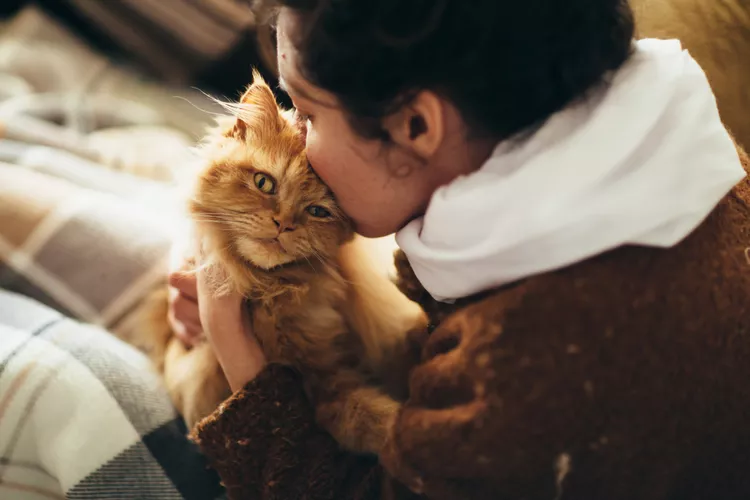
How to Prevent Cat Separation Anxiety During Vacations
Discover why cats develop litter box problems and cat behavior problems when you go on vacation and what you can do about it to help them.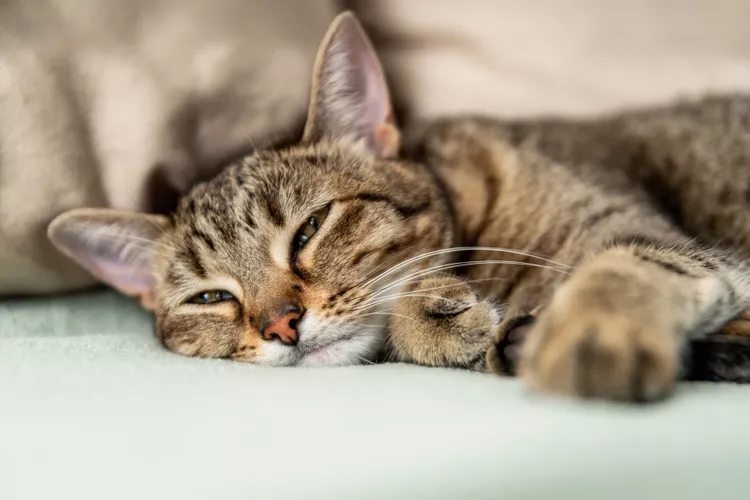
Cat Behavior Changes That Might Mean Something's Wrong
Cats' behavioral changes may indicate problems—or they may mean nothing at all. Explore causes of odd behavior and what to do about them.
Lhasa Apso: Dog Breed Characteristics & Care
The Lhasa apso is an ancient breed from Tibet that was bred to be a watchdog. Learn about its history, health, exercise needs, and more.
Reasons Why Dogs Run Away and How to Stop It
Dogs can escape, especially if they’re bored and not properly contained. Here are some techniques for stopping your dog from running away.
Can Dogs Get Depression? How to Help Your Sad Dog
Can dogs get depression? Learn about the signs of depression in dogs and find out how to help your sad dog.
How to Stop Aggression in Dogs
Dog aggression can be a serious behavior issue for pet owners. Learn how to stop aggression in dogs before someone gets hurt.
How to Stop Your Dog From Growling
A growling dog can soon become even more aggressive. Reduce the noise and potential for a dangerous situation with some of these techniques.
Why Do Dogs Dig Holes? How to Stop Your Dog from Relandscaping Your Yard
Dogs have been digging holes for centuries and for many reasons. Whether they’re bored or want to cool off in the dirt, here are the top reasons why dogs dig holes.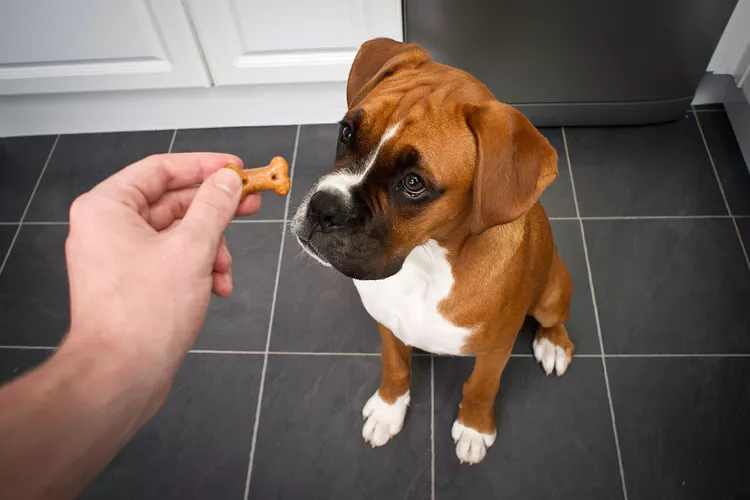
Dog Treat Varieties
Learn about the different types of dog treats on the market and decide which are best for your dog.
Can Dogs Eat Asparagus?
Dogs can eat asparagus, provided the vegetable is cooked plain and cut up for them. Seasonings, salt, and butter make it unhealthy for dogs.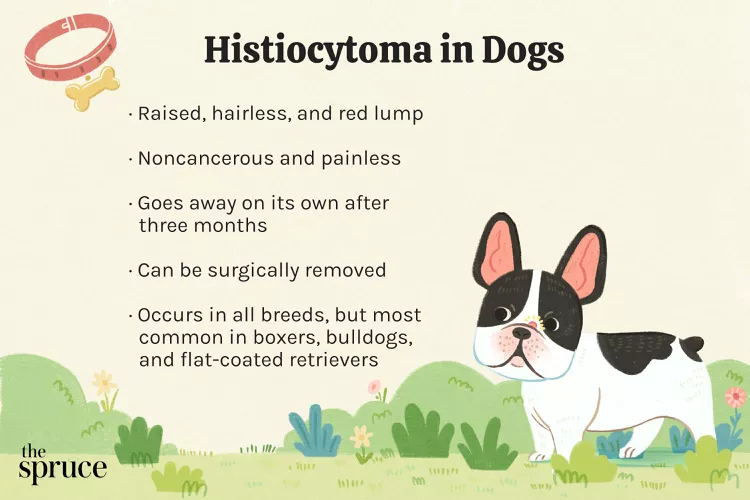
Histiocytomas in Dogs
A histiocytoma is a type of benign (non-cancerous) skin lump that usually affects young dogs. Learn the causes, treatment, and prevention.
Why Is My Dog’s Eye Swollen?
If your dog's eye is swollen, she may need veterinary attention. The inflammation could be caused by allergies, an injury, or even a tumor.
Common Bugs and Parasites Found on and Inside Dogs
Learn about common types of parasites in dogs. Find out how to treat and prevent parasites to keep your dog, your family, and yourself safe.
Exploring the Different Types of Pet-Friendly Beaches
Are you looking for pet-friendly beaches? Learn about the different types of pet-friendly beaches, their locations, and tips for visiting them with your pet.
10 Obscure, Little-known Canine Facts in Honor of National Dog Day
With National Dog Day upon us, it's time to celebrate everything about our favorite pets—even the weirder stuff. Here are 10 obscure facts about dogs you probably didn't know.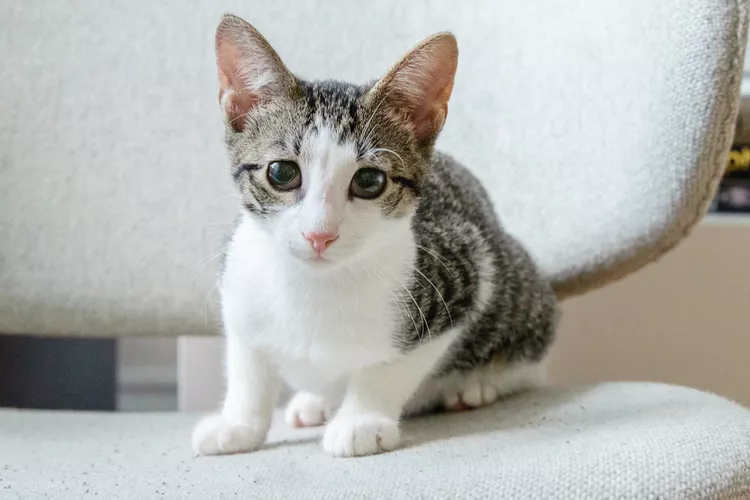
Kitten Development From 3 to 6 Months Old
Kittens grow and change a lot during their first year. Find out what happens between the ages of three months and six months old.
95 Siamese Cat Names
Our list of Siamese cat names has diverse and fun options to help you choose the ideal moniker for your elegant and lovable feline companion.
What to Buy for Your New Cat: A List of Essentials
Before you bring your new cat or kitten home, there are a number of things to collect or buy so your cat will feel welcomed like a family member.
The 6 Best Cat Nail Clippers of 2024 for a Safe Trim
Clipping your cat's nails can save your furniture and keep your kitty comfortable. We asked veterinarians for their cat nail clipper recommendations.